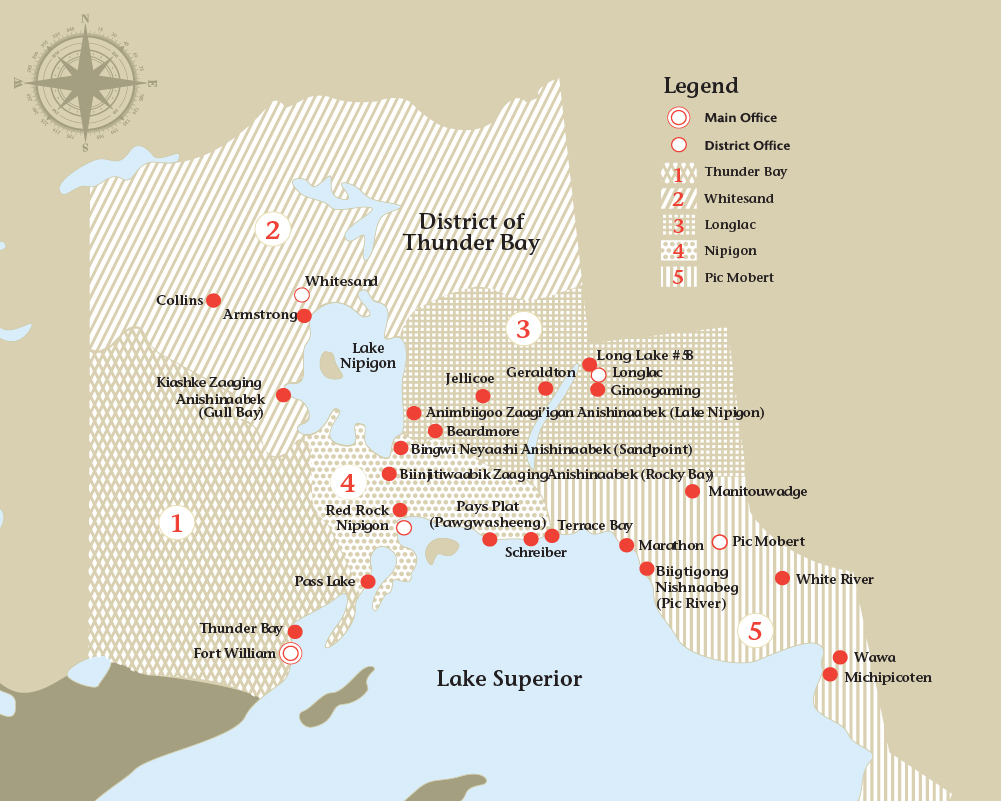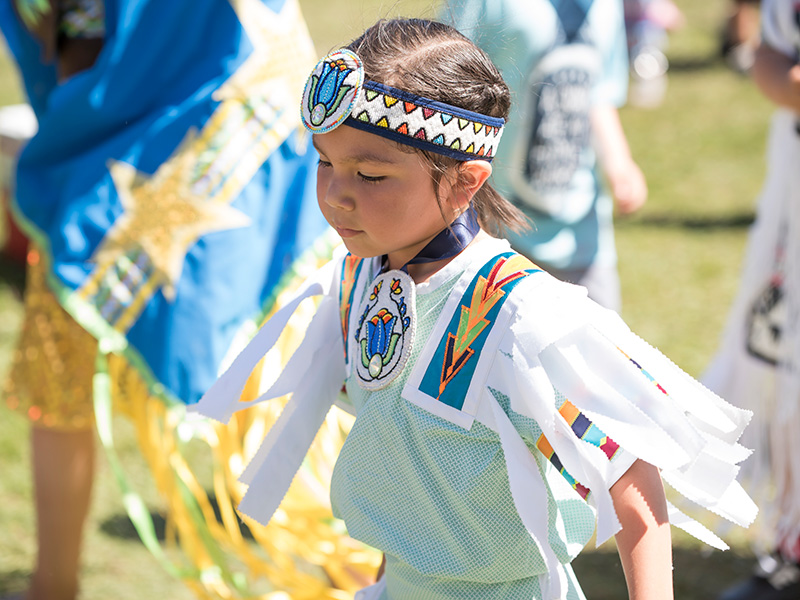About
A Culture of Care
Connecting Child Welfare, Health Services, and Mental Health & Addictions Around Individual, Family & Community Needs.
Dilico Anishinabek Family Care provides services for the complete life journey of all Anishinabek people.
Guided by the teachings of the past and Anishinabek culture, we are working to change the direction of Indigenous child, family and community wellness. Our goal is to find better pathways to healing and well-being by caring for children and families, and the communities where they live.
The Dilico Integrated Model of Care brings together a wide range of services and programs to support children, youth and families to live their good life – physically, emotionally, mentally and spiritually. We offer services, rooted in culture, that address diverse issues related to child welfare, mental health & addictions, and primary health.
‘Family’ is the best way to describe Dilico. We are a family that cares for each other.
Our Dilico spirit names are: Animkii Binesi (meaning Thunder Bird) and Migizi (meaning Eagle).
Communities
Dilico’s services are available to Indigenous and First Nation residents of any age living in our jurisdiction, as well as to children in Dilico care and their caregivers.
First Nations in Dilico’s jurisdiction are:
- Animbigoo Zaagi’igan Anishinaabek
- Biinjitiwaabik Zaaging Anishinaabek (Rocky Bay)
- Bingwi Neyaashi Anishinaabek (Sandpoint)
- Fort William
- Ginoogaming
- Kiashke Zaaging Anishinaabek (Gull Bay)
- Long Lake #58
- Michipicoten
- Pawgwasheeng (Pays Plat)
- Netmizaaggamig Nishnaabeg (Pic Mobert)
- Biigtigong Nishnaabeg (Pic River)
- Red Rock (Lake Helen)
- Whitesand

Mission
Vision
To be identified as a self-governed organization that is recognized as a leader in the research and delivery of child welfare, mental health and addictions, and health services. Delivery of community based services that enhance the well-being of Anishinabek children, families and communities in a culturally safe manner.
Core Values
- Client centered services based upon teamwork.
- Quality service delivery that is ethical, caring, compassionate and sensitive.
- Partnerships that advance the well-being of the Anishinabek.
- Role models who demonstrate positive leadership.
- An environment that creates positive morale.
- Effective and accountable management.
- Long range strategic planning.
Dilico Anishinabek Family Care
Our History
1979
Indian Bands within northern Ontario expressed concerns regarding the high number of Indigenous children in the care of Children’s Aid Societies. In December 1981, a Chiefs of Ontario Resolution endorsed: “That the child welfare agencies of Ontario and Manitoba shall not remove our children from our reserves and shall return to their Bands those of our children whom they have removed in the past; and that we the Indian Nations in Ontario shall create our own Indian Child Welfare laws, policies and programs, based on the protection of the family and the preservation of their Indian culture within the Indian family.”
1981
1986
1994
Dilico’s service delivery structure was decentralized and five District offices were established in Nipigon, Longlac, Armstrong, Marathon and Fort William First Nation
1995
Dilico was designated under the Child and Family Services Acts as a Native Children’s Aid Society for 13 affiliated First Nations and their memberships within the District of Thunder Bay and a portion of the District of Algoma


